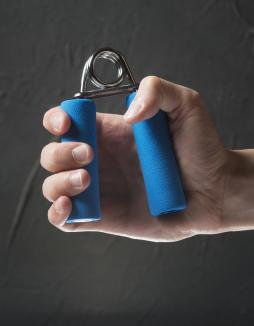7 Ways to Save Energy At Home
The energy cost is increasing globally, and monthly energy costs for homes appear to grow significantly. While there is little we can do about the external reasons driving up energy bills, there are some improvements you may make at home to save energy. Finding strategies to reduce energy use and increase your house's energy efficiency benefits the environment and your utility costs. Furthermore, energy conservation doesn't have to be challenging or expensive. In truth, you can save energy in your home in various clever ways without spending much money. Therefore, here are the seven best ways to save energy at home.
1. Switch Off
To save energy at home, turn off the power supply instead of leaving appliances on standby. Also, turn off your air conditioner and other electronics when you leave the house or go to bed. In addition, turn off your TV and other devices, including speakers and WiFi routers, at night or when you leave the house. Most computers feature energy-saving settings that turn the computer and screen off after some time of inactivity. Therefore, look for those options to save as much energy as possible.
At the same time, remember to turn off the light in rooms you are not using and turn off boilers if you don’t intend to shower. You would be surprised how much energy you lose when you add all these energy consumers and draw the line.

2. Replace Your Lightbulbs
Compared to their energy-efficient counterparts, conventional incandescent light bulbs use excessive electricity and require more frequent replacement. Compact fluorescent lights, LED bulbs, and halogen incandescent bulbs consume up to 80 percent less electricity and last three times longer than conventional ones. The official symbol for energy efficiency is ENERGY STAR®. Therefore, if you seek that label, you can be sure that your product or appliance is energy-efficient. For instance, LEDs with this label consume up to 90% less energy while producing the same amount of light as an incandescent light bulb.
3. Use Cold Water for Cleaning and Washing
Consider the heated wash an optional step you can take only if necessary. One of the simple ways to save energy at home is to avoid heating water every time you wash clothes or clean the house. You'll quickly discover that you can have immaculate clothes and a spotless home using cold water. That is if you use current washers and detergents made for cold washing and cleaning.

4. Install a smart thermostat
Another great way to save energy and money is by investing in a smart thermostat. With the help of modern technology and a smart thermostat, you can now set the temperature in your home from a mobile device. You can set up schedules for heating or cooling depending on whether you are home or not. Additionally, you can adjust the temperature for sleeping or when you are away on vacation. That can help you save a lot of energy and money in the long run.
5. Save energy in the kitchen
One of your most expensive appliances is your refrigerator, which also runs continuously. Therefore, ensure the refrigerator door is closed correctly and that cold air can’t escape. If you have another refrigerator or freezer, only use it when necessary. In addition, when cooking, use the microwave if you can, as it consumes far less energy than a stove. If you need to cook on the stove, keep the lids on the pots to reduce cooking time. Also, cook larger amounts in one go to have food for more than a day.
On the other hand, when you use the dishwasher, set it on the economic cycle. Furthermore, only run the dishwasher after you fill it.

6. Upgrade your appliances
When the time comes to replace an outdated appliance, do your homework and purchase one with a high energy efficiency rating. Long-term, this will enable you to reduce your energy consumption and costs. And don’t think that only large items like refrigerators and washers get energy efficiency ratings. You can also find them in many small appliances, such as toasters. These small appliances require more energy than you may think. Therefore, next time you're out shopping for a new appliance, check the energy efficiency rating and choose the most energy-efficient one. Additionally, look for appliances with energy-saving features like rapid wash cycles or eco cycles.
In addition, if you need to relocate and move your new appliances and valuable antiques to your new place, separate them to keep them safe. When it comes to antiques, pack them the right way and ship them as soon as possible. The sooner your valuable objects are safe and out of the way, the better. Then you can finish packing everything else that is not in danger of being damaged easily
7. Insulate your home
Heating and cooling can account for more than half of a household's energy costs. Therefore, improving insulation in the floors, ceilings, walls, and roof allows you to better manage your home's temperature and save money. Furthermore, have your home professionally examined for insulation; that way, you will know what type of insulation you require and where you require it.
At the same time, check and clean your HVAC system if needed. A clean heating and cooling system will require less power to function than one filled with debris.
In conclusion
There are many simple ways to save energy at home. However, the recommendations given above can help you get started on a more energy-efficient lifestyle. After all, you can save energy and money with everyday practice and some changes.












